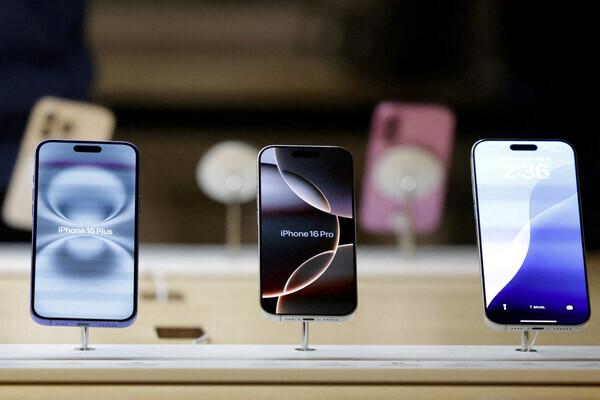
In a calculated maneuver to mitigate potential financial repercussions from anticipated trade policy shifts, technology behemoth Apple Inc. reportedly orchestrated an unprecedented surge in iPhone shipments from its Indian manufacturing hubs to the United States during the month of March. This strategic inventory accumulation occurred in the immediate lead-up to the announcement of substantial reciprocal tariffs by the US administration under Donald Trump, as evidenced by meticulously compiled Indian customs data analyzed by Reuters.
The granular details of the customs records paint a clear picture of Apple's proactive measures. The combined export value of iPhones destined for American shores from Apple's two primary Indian suppliers, the manufacturing titans Foxconn and Tata Electronics, reached an astounding $2 billion (approximately ₹166 billion INR or KRW 2,854.8 billion) in March. This figure eclipses any previous monthly export volume, underscoring the urgency and scale of Apple's logistical undertaking.
Foxconn, a cornerstone of Apple's global supply chain and a significant player in India's burgeoning electronics manufacturing sector, spearheaded this export drive. The Taiwanese multinational shipped an unprecedented $1.31 billion worth of iPhones from its Indian facilities in March. This record-breaking performance not only surpasses any previous monthly figures for Foxconn's Indian operations but also equals the aggregate export volume achieved during the preceding two months of January and February of the current year. The diverse array of iPhone models included in this substantial export volume comprised the iPhone 13, 14, 16, and the purportedly more economically positioned iPhone 16e. Cumulatively, the fiscal year 2025 has witnessed Foxconn's Indian arm export a total of $5.3 billion worth of iPhones to the United States, highlighting the increasing significance of India within Apple's global production strategy.
Complementing Foxconn's efforts, Tata Electronics, another crucial partner in Apple's Indian supply ecosystem, also significantly ramped up its export activities in March. The Indian conglomerate shipped a substantial $612 million worth of iPhones to the United States during this period. The models primarily constituting this export volume were the more contemporary iPhone 15 and iPhone 16. Notably, Tata Electronics' export volume witnessed a remarkable surge of approximately 63% compared to the figures recorded in February, indicating a concerted effort across Apple's supplier network to bolster US inventory levels.
The precipitous increase in iPhone exports from India to the United States in March strongly suggests a preemptive strategy employed by Apple to fortify its inventory reserves within the American market. This proactive measure was ostensibly undertaken in direct anticipation of the announcement of significant reciprocal tariffs targeting major trading partners by the administration under Donald Trump.
The pronouncement on trade policy came on April 2nd, when President Trump outlined the prospective imposition of substantial reciprocal tariffs on key global trading partners. The proposed tariff rates included a notable 26% levy on goods originating from India and a considerably steeper 145% tariff on products imported from China. These announcements sent ripples of apprehension through international trade circles, prompting multinational corporations with intricate global supply chains to reassess their operational strategies.
Subsequent to the initial tariff announcement, a degree of temporary reprieve was granted. President Trump announced a 90-day postponement of the reciprocal tariffs for all countries with the exception of China. Furthermore, critically for Apple and the broader consumer electronics industry, smartphones and other electronic products were explicitly excluded from the immediate imposition of these reciprocal tariffs. This temporary exemption provided a window of opportunity for companies like Apple to adjust their supply chain logistics.
The scale and urgency of Apple's inventory buildup are further underscored by reports indicating the deployment of at least six dedicated cargo charter flights specifically for the expedited transportation of iPhones from India to the United States. This logistical undertaking, bypassing standard shipping channels, highlights the strategic imperative placed on speed and volume by Apple. An industry insider, privy to the intricacies of international trade and supply chain management, characterized this extraordinary logistical effort as a "strategic response to avoid tariffs," implying that the primary motivation behind the accelerated shipments was to ensure sufficient inventory within the US market before any potential future tariff implementations could impact costs.
Further evidence of Apple's commitment to speed and efficiency in this inventory buildup can be gleaned from reports detailing a direct request made to the Chennai airport authorities in Tamil Nadu, southern India. Seeking to drastically reduce transit times, Apple reportedly implored airport officials to expedite customs clearance procedures, aiming for a reduction from the standard 30-hour processing period to a mere 6 hours. This proactive engagement with logistical infrastructure underscores the high stakes and the concerted effort undertaken by Apple to optimize its supply chain in the face of potential trade headwinds.
The strategic actions undertaken by Apple in March underscore the complex interplay between global supply chains and international trade policy. By proactively building inventory in the United States, Apple aimed to insulate American consumers and its own profitability from the immediate impact of potential tariff impositions. While the temporary reprieve on tariffs for electronics provided a degree of immediate relief, the swift and large-scale mobilization of iPhone shipments from India serves as a compelling illustration of how multinational corporations strategically adapt to the dynamic and often unpredictable landscape of international trade regulations. The long-term implications of these trade policies on Apple's global manufacturing and distribution strategies remain a subject of ongoing analysis and observation within the global economic and technology sectors.
[Copyright (c) Global Economic Times. All Rights Reserved.]






























